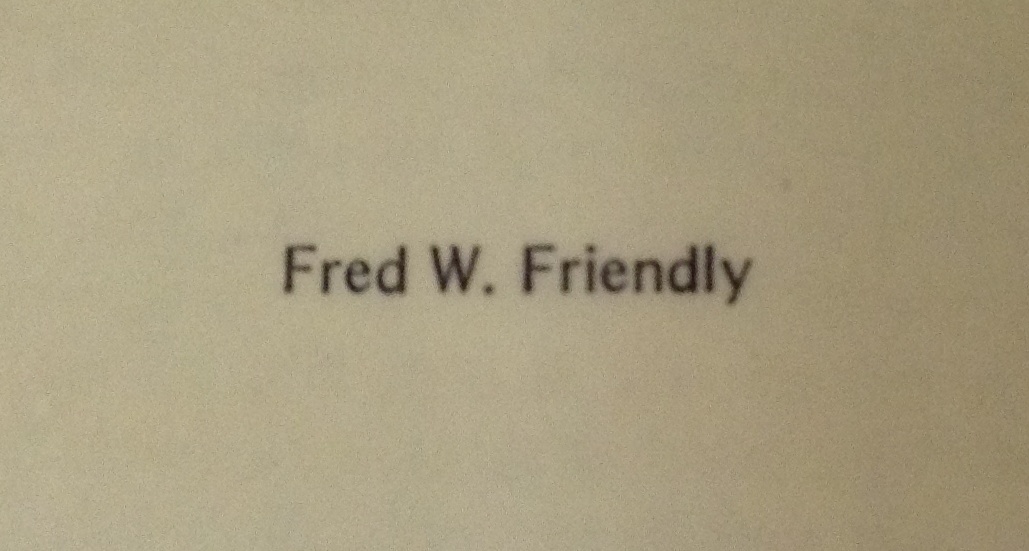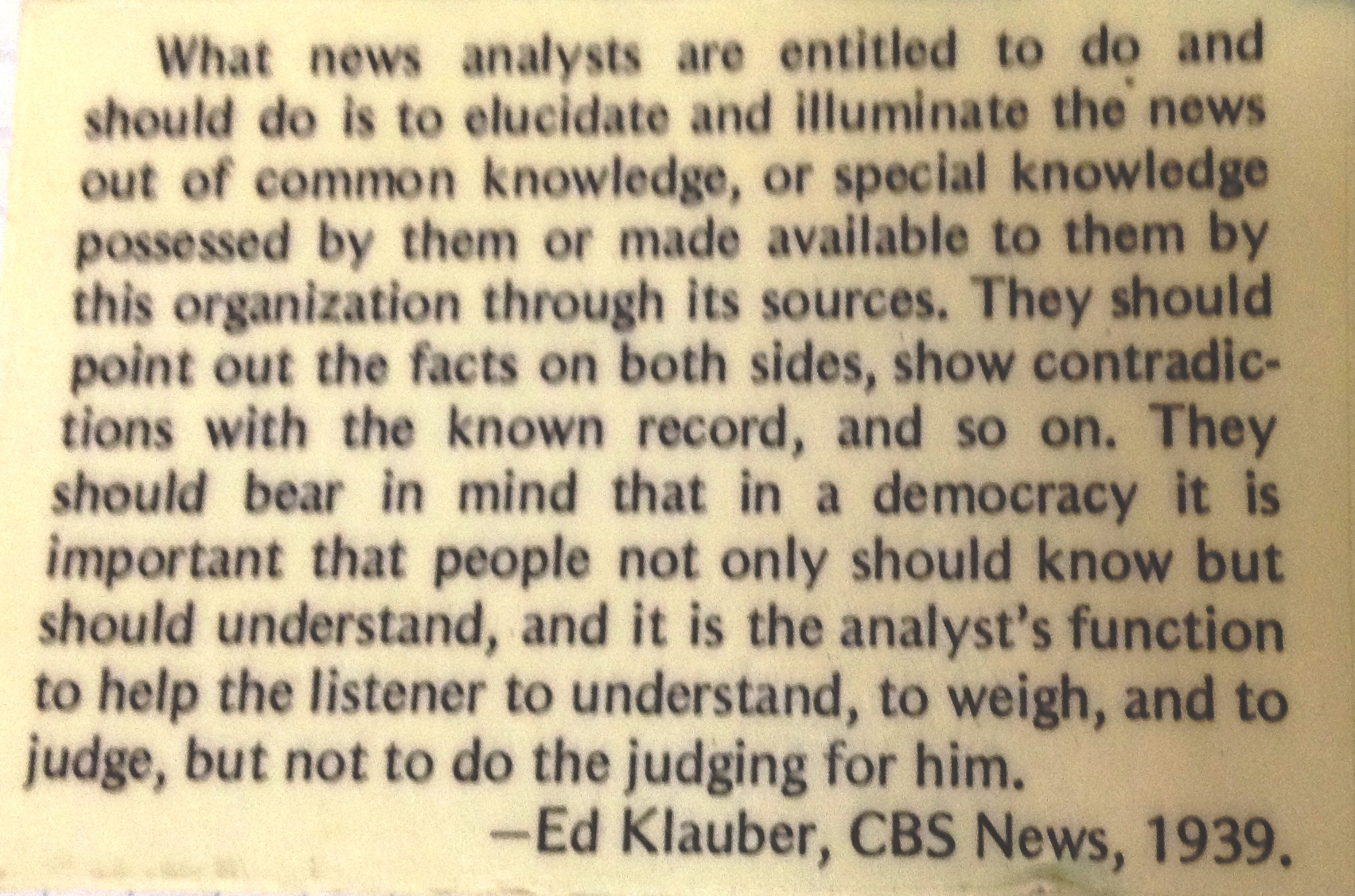
I remember him as a big and good-natured man, with some extra kilos, advancing towards the stage of the assembly hall of the School of Journalism at Columbia to deliver the inaugural lecture of the 1976-77 Master.
Stirring a few days ago among boxes of old books, I found the card he or someone else distributed among the students, with his name on one side and a text by Ed Klauber (1939) on the other.
His presentation was so moving –a passionate account of his memories, seasoned with the toughest images filmed for CBS in the first Nazi concentration camps open to cameras after the German defeat and a selection of the stiffer moments of the communist witch hunt by Senator McCarthy in the 50s, presented by Ed Murrow with Friendly as orchestra director- that I had completely forgotten both the card and its message.
It’s worth reading today in a catatonic Spain
Le recuerdo grande y bueno, con algunos kilos de más, avanzando hacia la tarima del salón de actos de la Escuela de Periodismo de Columbia para pronunciar la conferencia inaugural del Master de 1976-77.
Revolviendo hace unos días entre cajas de cuadernos viejos, encontré la tarjeta que repartió o repartieron entre los alumnos, con su nombre en una cara y un texto de Ed Klauber (1939) en la otra.
Su presentación fue tan intensa -el relato apasionado de sus recuerdos, aderezados con las imágenes más duras que filmó para la CBS en los primeros campos de concentración nazis a los que pudo acceder tras la derrota alemana y con una selección de los momentos más tensos de la caza de brujas comunistas por el senador McCarthy en los años 50, transmitidos por Ed Murrow, con Friendly de productor o director de orquesta- que había olvidado por completo tanto la tarjeta como su mensaje.
Creo que merece la pena volver a leerla en esta España catatónica de 2014.

«Our job is not to make up anybody’s mind, but to open minds, and to make the agony of decision-making so intense you can escape only by thinking.»
Fred W. Friendly (1915–98)
Journalist
Faculty 1966-79, Emeritus 1980-92
LLD (hon.) 1986In a 60-year career, Fred Friendly was an influential force for quality and integrity in broadcast journalism. As the producer for CBS correspondent Edward R. Murrow, Friendly helped enliven and popularize television news documentary in the decade after World War II, when television news was still in his infancy.
Two of their programs, See It Now (1951-58) and CBS Reports (1959-64), examined issues of the day such as McCarthyism, the plight of migrant workers, and tobacco’s link to lung cancer. Friendly’s success and stature propelled him to the presidency of CBS News in 1964. By then, his outspoken defense of the news division’s independence from CBS’s corporate imperatives led to clashes with network management.
The tension culminated with his dramatic resignation in 1966, after the network chose to air I Love Lucy reruns rather than live U.S. Senate hearings on the war in Vietnam. Friendly then became an advisor to the Ford Foundation and, in that capacity, helped to establish the Public Broadcasting Service.
A passionate defender of the First Amendment who carried a copy of the U.S. Constitution in his pocket, Friendly wrote books on the subject, such as Due to Circumstances Beyond Our Control (1967), The Good Guys, the Bad Guys, and the First Amendment (1977), and The Constitution: That Delicate Balance (1984). The year he left CBS, he also came back to Morningside Heights, the neighborhood where he had spent his first 10 years, as the Edward R. Murrow Professor of Broadcast Journalism at Columbia’s Graduate School of Journalism.
Related


2 Comentarios
Responder →